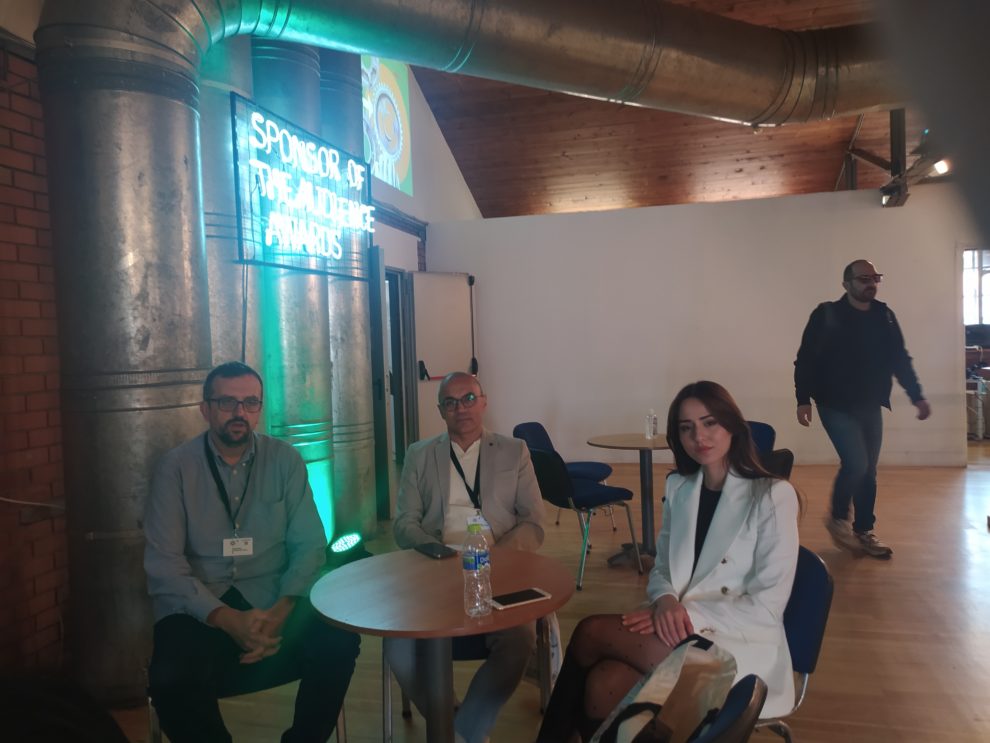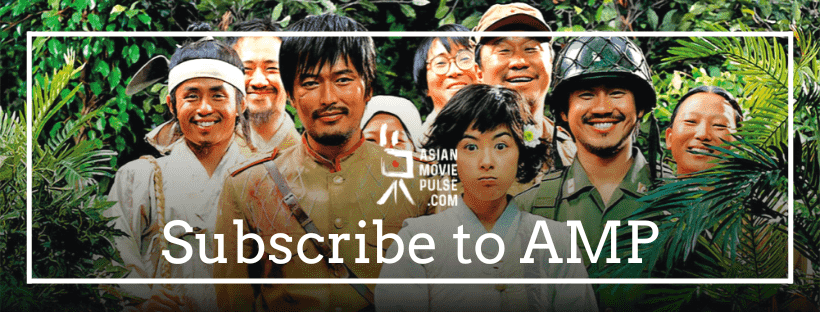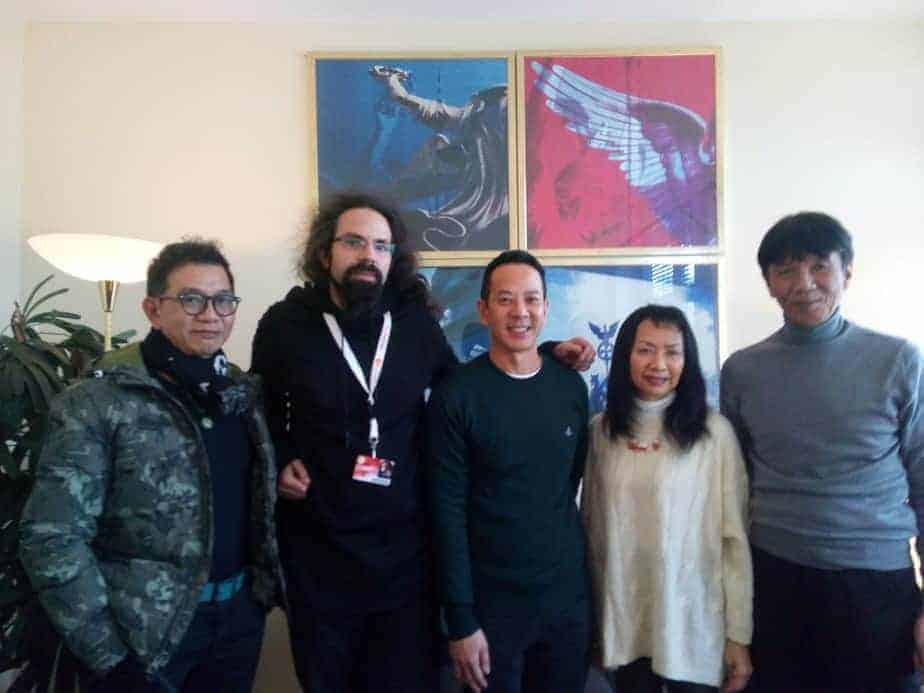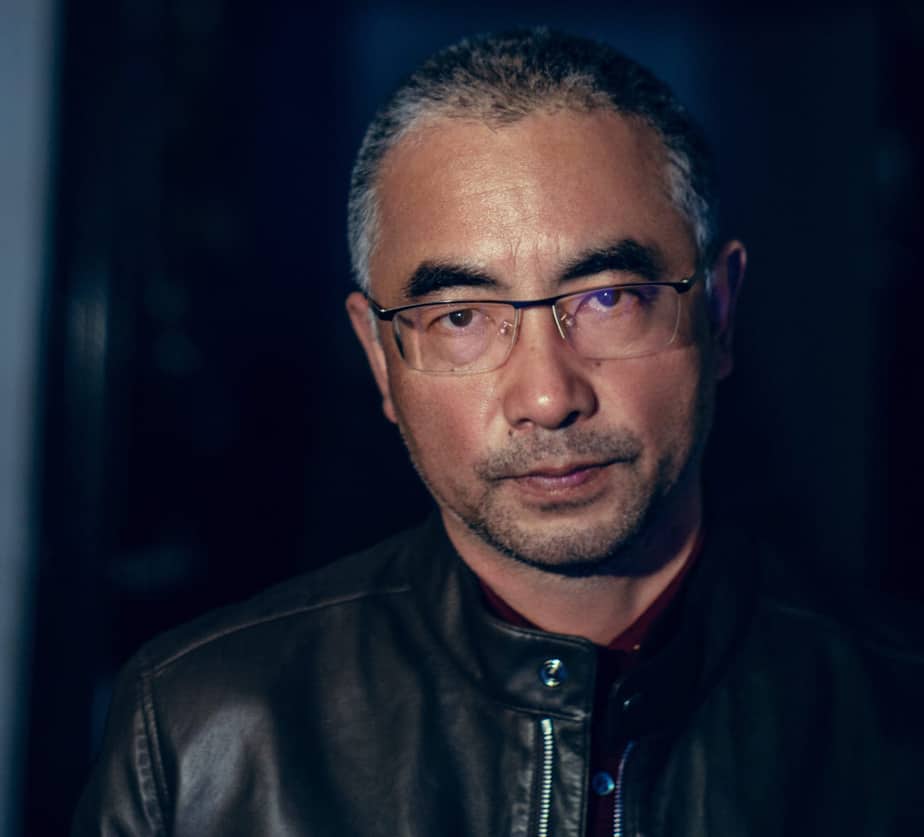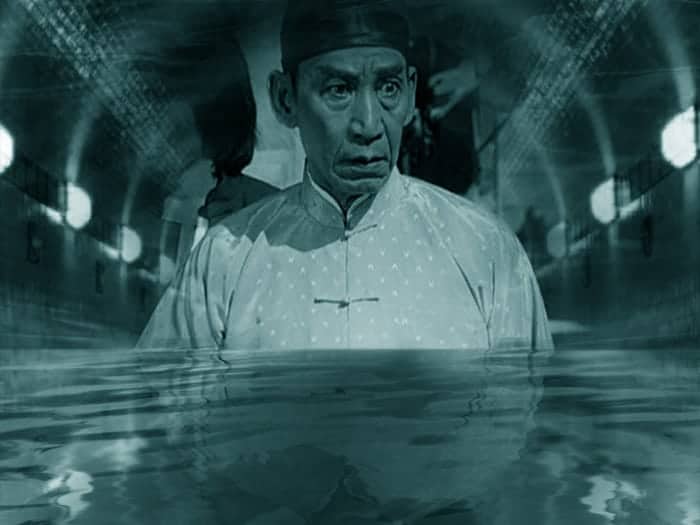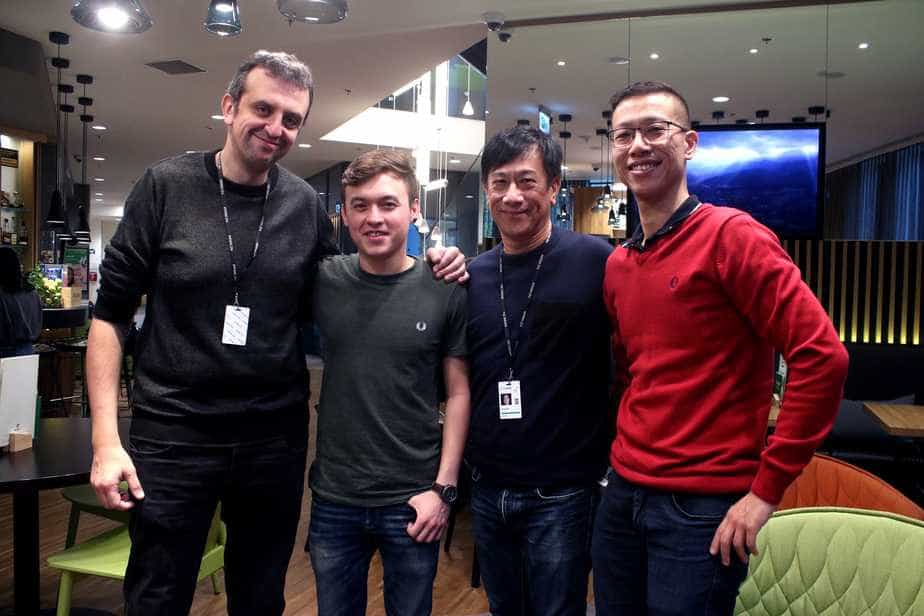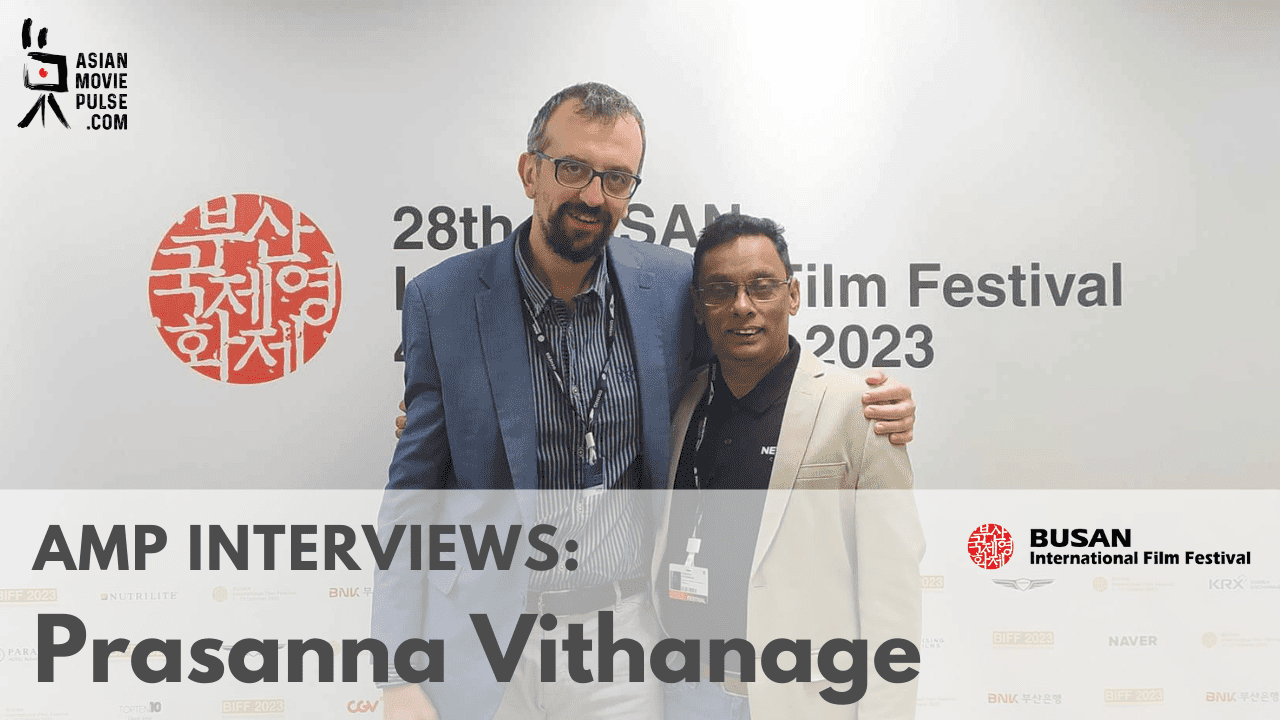Kazım Öz is an awarded Kurdish director, scriptwriter, and producer. He started to produce art with Kurdish theater. In the 1990s, he continued to work with Yapım 13 Production Company which is affiliated with Mesopotamia Culture Center. His short film Ax (Land, 1999) received many awards in A-class film festivals. He shot his first feature film Photograph in 2002.
Sema Gultekin is the protagonist of Oz's latest film, in her first leading and acting role.
On the occasion of “The Life of a Snowflake” screening at Thessaloniki Film Festival, we speak with them about the non-linear narrative of the film, casting Gultekin, the situation with the Kurdish in Turkey and Kurdish cinema, women in Turkey and other topics.
“The Life of a Snowflake“ screened at Thessaloniki International Film Festival
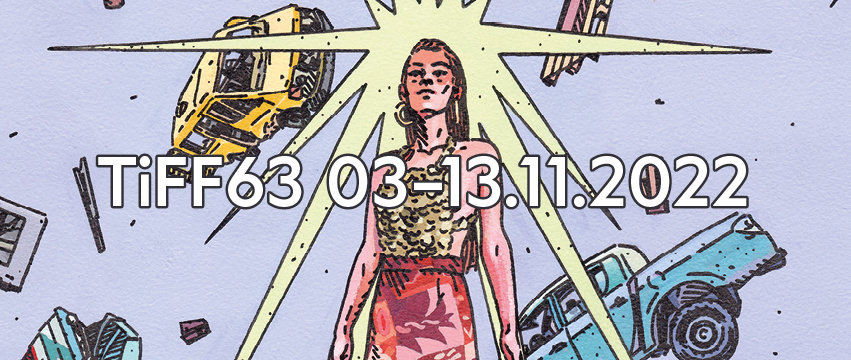
You chose a non-linear narrative. Why is that?
Kazim Oz: The result would not be the same if we chose a linear narrative. I think this approach allows for dynamic thinking from the audience and that is why I think it is better. The story starts with Dersim and then it goes back to the past, and I wanted to present Miase's feelings as something alive and I felt, in general, that this type of narrative would be better for the characters.
What was the inspiration behind the story?
Oz: There are many true stories I heard from various people and then I worked on them. When I was writing the script, however, I changed many things. In the actual story, the love was between two Kurdish, a man and a woman, but eventually I decided to change it to a Turkish woman and a Kurdish man. I did that because I wanted to highlight the background of the war.
How would you describe your character?
Sema Gultekin: She is a strong woman. She is young and strong. This is not exactly the rule in Turkey, since, due to our families and our culture we cannot grow up early. Not as in Europe and the US, as far as I saw. So Miase is different from her colleagues, because she is living in North Turkey and Trabzon is a place where families are together all the time, from morning till night but she wanted to go on her own to university and she did. And then everything happened in her first year there. I don't want to give any more spoilers, but she is kind, nice and strong. This is a movie about a strong woman.
So, if you met her in real life, would you be friends with her?
Gultekin: Yes, of course. I love her, although I have heard the opposite about her many times
How is the situation with women in Turkey nowadays?
Oz: It is pretty close to the film for some women. In Turkey, everyday one to two women are killed by men.
So if the guy Miase sleeps with, actually went to your father and told him so, would your father force you to marry him?
Gultekin: Yes. For many women in Turkey actually. If I slept with one guy and my father learned about it, I would have to marry him. Since I slept with him, I have to marry him.
So why does she take the risk?
Oz: It is a difficult question. Sometimes, during intense pressure, some people find a way out in that fashion. Because they want to be free, they want to feel something different. I think it is normal.
What is the situation with the Kurdish at the moment?
Oz: It is not good. For about ten years, and until five years ago, it was better but now the war started again and if you want to make a film for example, on Kurdish people, it is difficult. Kurdish don't have full rights yet. We can speak Kurdish now in Turkey, but we cannot have an education in Kurdish language. If you shoot a film in Kurdish, you cannot sell it to TV for example. So, the Kurdish issue still continues.
Is there racism against Kurdish inside Turkey? Would people treat you differently if they knew you were Kurdish?
Oz: Not everyone, but there are racist groups and even a political party who say that we are not Kurdish, we are all Turkish. Still (laughter).
What is the situation with Kurdish cinema at the moment?
Oz: In Turkey, there used to be many films until five years ago, but now, very few. Because many filmmakers and producers are afraid to shoot, they may not be able to sell it, or even face more problems. For Kurdish cinema in general, we can say that, step by step, it becomes bigger. There are many good films, many young people from Kurdistan, from Turkey, from Europe want to make Kurdish films. I think the future is hopeful.
Would Gultekin be in trouble now that she has played in a movie directed by a Kurdish?
Oz: I don't think it is a big problem for actors. There were some actors in my first movies, and now they are big stars on TV.
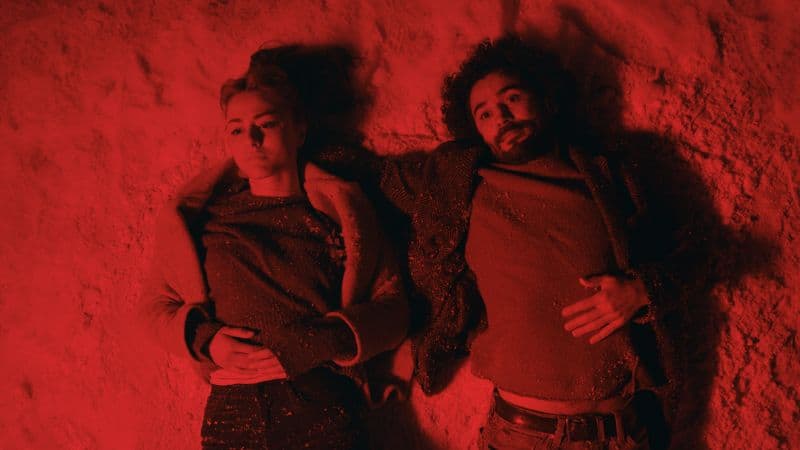
Gultekin: Yes, it is like that, there is no problem for us.
So, why did you choose Gultekin to play the part?
Oz: I did many auditions until I found the right actors and actresses. And she was the best. We were surprised by her audition.
And the rest of the cast?
Oz: It was also difficult to find them, again we had to audition excessively
What about Miase's father?
Oz: (laughter) Cezmi Baskin is a very good actor, very famous in Turkey. He has been an actor since his childhood.
Can you tell me a bit about the music in the movie?
Oz: They are all original pieces, even the smaller ones. Mustafa Biber composed all of them. I have worked with him for many years, since my first short film. He started with me. We understand each other perfectly and he is very precise, he wants to deal with every detail. For example, yesterday he called me and said that he wanted to change something in the film. I had to insist that the film was finished (laughter). When you make a film with Mustafa, it is never finished.
And why tango?
Oz: It came from a real story, about a character who plays tango and I thought it would be interesting to have this traditional dance performed by a Turkish and a Kurdish.
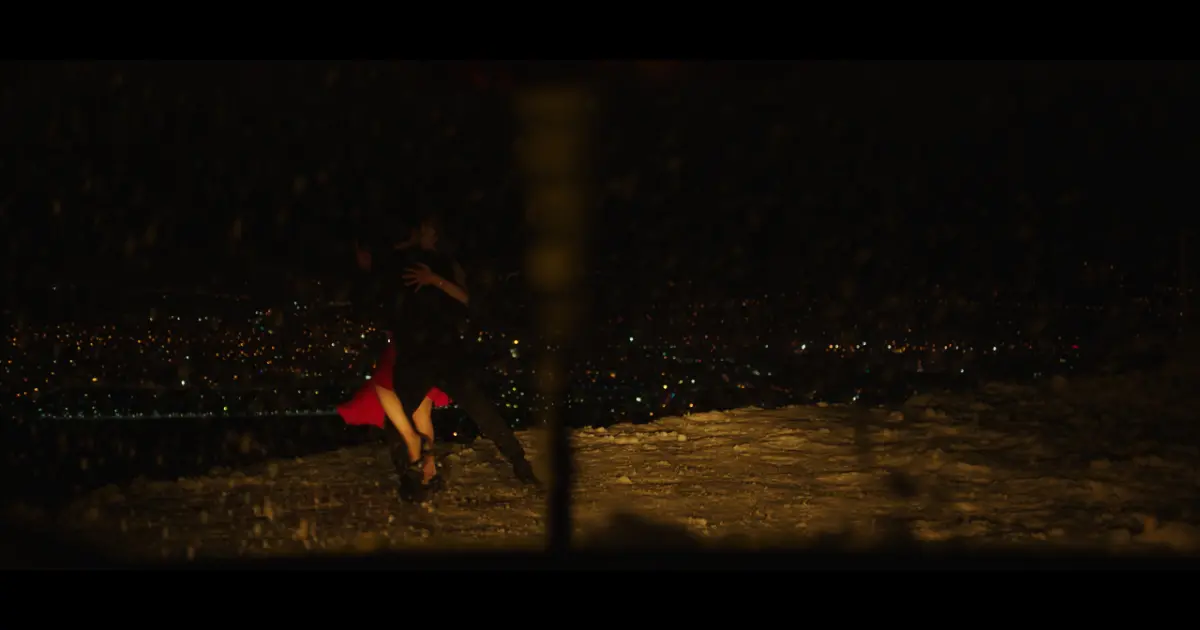
Did you enjoy dancing tango in the movie?
Gultekin: I liked it. We had a teacher to show us how to dance it, but we performed it on the snow and, Oh My god, it was so hard, because the snow was real and it was really cold. Thankfully, the teacher showed us how to make it easy for one minute and in the end, we did it.
How many takes did it take?
Oz: Many (laughter). Actors and actresses don't like me because I always have many takes and they get very angry with me. Some of them. In my previous film, one of them left, he said he did not want to work with me anymore.
This also happened for the love scenes in this film?
Oz: No, just four of five takes.
Gultekin: Maybe five or six.
How were those scenes for you, were you comfortable?
Gultekin: I was, because they made me comfortable. But it was hard of course. This is my first movie and first love scenes.
Oz: When we started the scene, she asked me to cut a bit, but I said no, impossible (laughter)
Gultekin: But I now know that his way resulted in stronger scenes, so it is ok.
Can you tell me about the cinematography, what you wanted to do in the visual aspect of the movie?
Oz: I think cinematography in the film is as important as the characters. There was a significance in the geography, for example when the protagonist goes to the mountains. We shot in many locations, mostly in Dersim, but in many different places. We also shot in Erzincan and in Istanbul, the hospital scene.
Gultekin: And in Trabzon, my city.
Tell me a bit about that guy who plays music on the street.
Oz: He is a real musician, and he lives in Trabzon. When I was researching the story, I met him and I asked him to be in the film, and he accepted. But what he plays in the film was a special song, music and lyrics just for this movie.
Has the film screened in Turkey?
Oz: Not yet, we have applied, but I don't know if they will give us permission. However, many festivals in Turkey did not accept the film.
Why?
Oz: I guess for the content. The Antalya Film Festival has not accepted my last six films.
Are you working on anything new?
Oz: I just finished my new film. We will have the world premiere in Paris.
Are you also in that film?
Gultekin: No.
Will you cast her again you think?
Oz: I think so, but for this film, I did not pick the cast. I changed something, but not too much.
Are you planning to continue acting?
Gultekin: I want to be an actress, yes.
Did you enjoy the whole experience?
Gultekin: I enjoyed and I learned a lot of things about acting and my character, being on a set, life while shooting, I learned what it means to be an actress. I have played in some things before, but this is my first movie and my first lead, so it was really important for me.
Have you studied acting?
Gultekin: I actually studied psychology at the university but I attended some acting courses.
Are you satisfied with your performance?
Gultekin: I don't know, I still have not seen the whole film. Oz: Tomorrow we will see. (laughter)


